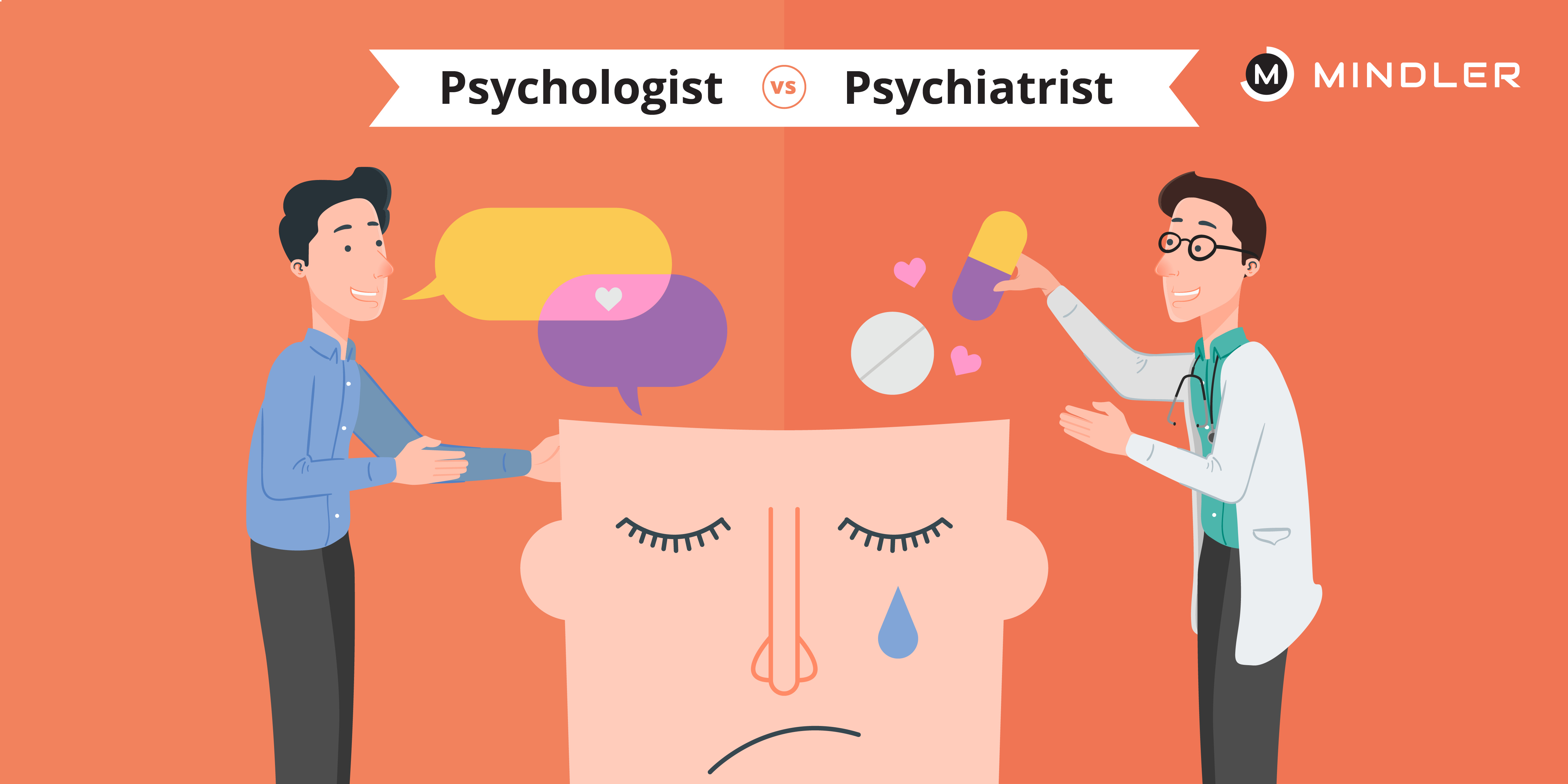Professional Psycho Therapists Vs Psychiatrists: Key Distinctions You Ought To Know
The distinction in between clinical psycho therapists and psychoanalysts is important for people looking for psychological health and wellness care, as each specialist offers special experience shaped by their instructional backgrounds and therapy approaches. While professional psychologists concentrate mainly on psychiatric therapy to deal with psychological and psychological concerns, psychoanalysts, as clinical doctors, bring a medicinal perspective to therapy, frequently linking drug with restorative techniques. This difference increases vital questions regarding which specialist may be finest matched for various psychological wellness needs. As we check out these vital differences additionally, the implications for treatment selections come to be increasingly considerable.
Educational History
Many individuals seeking psychological wellness solutions might ask yourself concerning the distinctions in instructional histories in between professional psycho therapists and psychoanalysts (clinical psychologists kew Melbourne). The differences are considerable and necessary for recognizing the duties each expert plays in mental healthcare

On the other hand, psychiatrists are medical physicians (M.D. or D.O.) that finish a four-year medical degree adhered to by a residency in psychiatry, which lasts an added 4 years. Their medical training equips them to understand the organic aspects of mental illness, allowing them to suggest drugs and use a medical perspective on therapy.
These differing educational courses highlight the unique knowledge each professional offers the field, forming their techniques to diagnosis, person, and treatment care (clinical psychologists kew Melbourne). Recognizing these differences is crucial for people navigating the mental wellness system

Therapy Techniques
Diverse therapy strategies identify the practices of professional psychologists and psychoanalysts, mirroring their distinct training and locations of knowledge. Their emphasis is on emotional and mental evaluation, treatment, and the growth of coping methods to resolve various mental wellness problems.
On the other hand, psychiatrists are distinctively certified to diagnose and treat mental health and wellness problems through a combination of psychotherapy and pharmacotherapy. Their clinical training permits them to suggest medications, which can be vital for taking care of problems such as schizophrenia, bipolar affective disorder, or severe anxiety. Psychiatrists commonly take an even more biomedical approach, considering the biological, mental, and social elements influencing an individual's psychological wellness.

Function in Mental Wellness Treatment
The duties of clinical psychologists and psychiatrists in mental health care are complementary, reflecting their distinct training and knowledge. Scientific psycho therapists mostly concentrate on the evaluation, diagnosis, and treatment of mental issues through various therapeutic modalities, consisting of cognitive-behavioral treatment (CBT), social therapy, and psychoeducation. Their training highlights comprehending human habits, emotional functioning, and the therapeutic procedure, enabling them to provide evidence-based treatments tailored to specific requirements.
In comparison, psychiatrists are clinical doctors who specialize in the medical diagnosis and treatment of mental wellness conditions, typically employing a biomedical strategy. They can recommend medications to take care of psychological symptoms and are educated to think about the physiological facets of mental wellness, such as neurobiology and pharmacology. This medical perspective enables psychiatrists to resolve complex instances that learn the facts here now may call for a combination of drug administration and psychiatric therapy.
Together, clinical psychologists and psychoanalysts produce a thorough mental wellness care structure, dealing with both emotional and medical requirements. Cooperation between these experts ensures that individuals obtain holistic treatment, websites ultimately improving therapy results and boosting the lifestyle for individuals experiencing psychological wellness difficulties.
Kinds Of Disorders Treated
While both professional psycho therapists and psychoanalysts resolve a vast array of psychological wellness problems, their strategies and locations of know-how commonly determine the particular conditions they treat. Professional psycho therapists mostly focus on the assessment and therapy of emotional, behavioral, and cognitive problems via psychiatric therapy.
On the other hand, psychiatrists are clinical physicians who can suggest drugs and have specialized training in the biological facets of psychological health and wellness. They frequently take care of a lot more complicated psychiatric problems that may require medicinal intervention, such as schizophrenia, bipolar disorder, extreme anxiety, and substance make use of conditions. Psychoanalysts might integrate drug administration with psychiatric therapy however generally concentrate on the medical and biochemical elements of psychological health and wellness issues.
Comprehending these distinctions can aid individuals look for the suitable treatment tailored to their details mental wellness needs, guaranteeing they receive one of the most effective therapy for their conditions.
Insurance Policy and Cost Factors To Consider
Browsing insurance policy and expense factors to consider is a vital facet for people looking for mental wellness services from clinical psychologists or psychoanalysts. Both professions may approve various insurance coverage strategies, yet the degree of coverage can differ significantly. Psychiatrists, that frequently recommend drug, may have different invoicing techniques compared to medical psycho therapists, that typically concentrate on psychotherapy.
Insurance compensation for psychological solutions may be much you could look here more positive as a result of the clinical nature of their practice. Consequently, clients might run into greater deductibles or co-pays when speaking with a psychoanalyst. On the other hand, medical psychologists may offer services billed under mental health benefits, which could result in lower out-of-pocket costs, depending on the insurance company's policy.
Moreover, individuals should take into consideration the regularity and period of treatment sessions when examining expenses. While psychiatrists might offer much shorter, medication-focused visits, professional psycho therapists commonly involve in longer sessions devoted to therapeutic techniques.
Inevitably, recognizing the certain terms of one's insurance strategy, consisting of network availability, coverage restrictions, and pre-authorization demands, is vital. Patients are urged to call their insurance service provider to make clear advantages and explore alternatives for inexpensive psychological health and wellness care.
Verdict
In summary, the differences in between clinical psychologists and psychiatrists are critical for notified choices relating to psychological health care. Educational background, therapy strategies, and roles in mental health and wellness dramatically differ between the two occupations.
The difference in between professional psychologists and psychiatrists is important for people looking for psychological wellness treatment, as each professional offers distinct know-how formed by their instructional histories and therapy methodologies.The roles of medical psychologists and psychoanalysts in mental health care are complementary, reflecting their distinct training and knowledge.While both medical psychologists and psychiatrists deal with a broad range of mental wellness problems, their strategies and locations of know-how usually determine the certain conditions they treat.Browsing insurance policy and price factors to consider is a vital element for individuals looking for psychological health and wellness services from clinical psycho therapists or psychiatrists.In summary, the differences in between medical psychologists and psychoanalysts are vital for notified choices pertaining to mental health treatment.